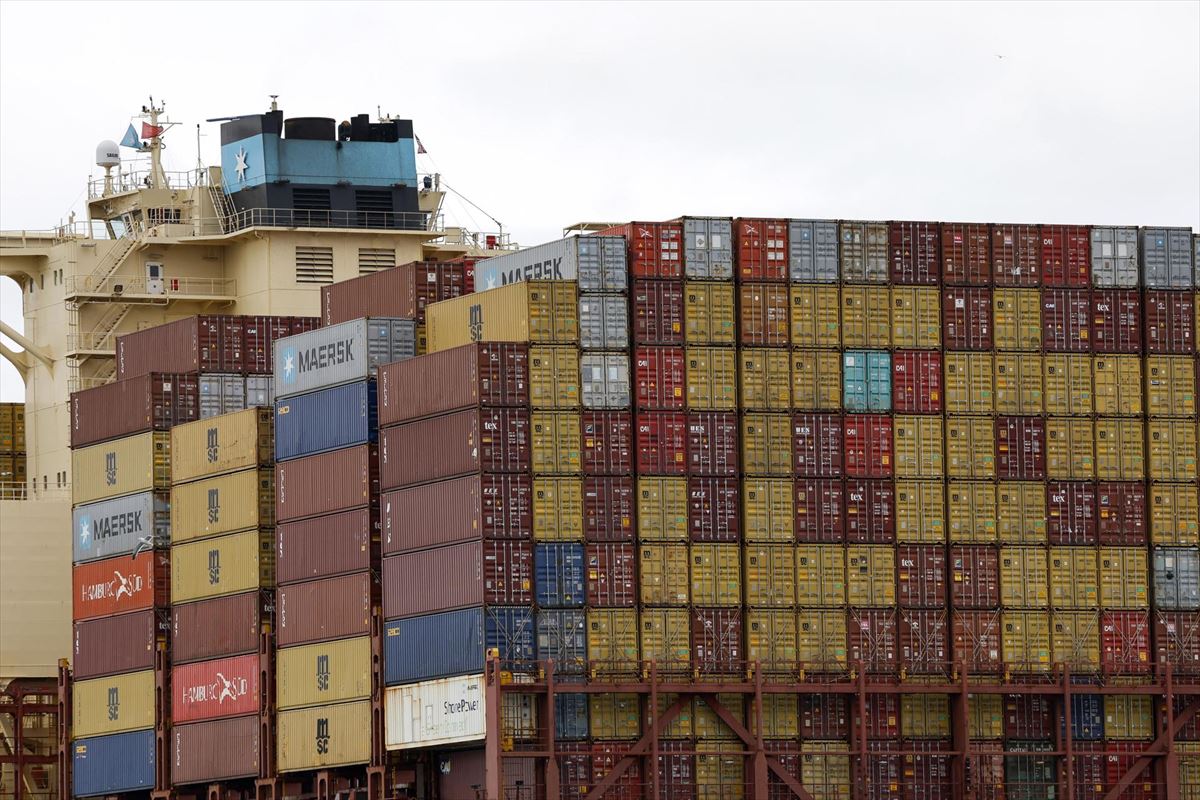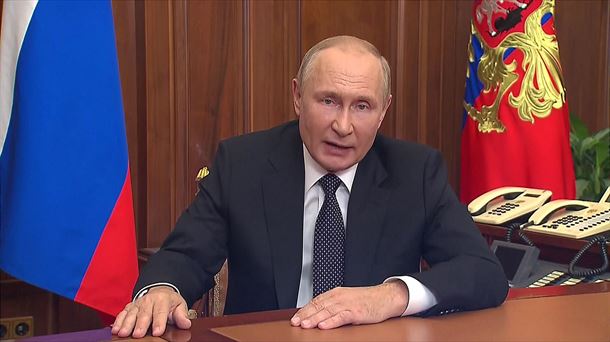The Republican Government has already resorted to the judicial ruling that blocks the entry into force of most rates, but could also implement other laws and can use them as a quick coupling after the paralysis determined by American justice.
The administration of the President of the United States, Donald Trump, has taken refuge to the Judicial decision that blocks the entry into force of most rates Imposed on import since the New York Tycoon arrived in the White House in January because it was overwhelmed in their functions when he took this measure.
The president has decided to appeal as soon as he has known the judgment of the federal court, who is of the opinion that its rate policy is in broad strokes, “although the administration is insisting on considering these taxes in the consideration that there are significant commercial deficits that promote” a national emergency situation “at the economic level.
The appeal was presented to the United States Court of Appeal, as indicated by the judicial documents to which the American television network has had access.
This Fast movement through the Trump government has a situation in the country uncertainty for companies and consumersIn addition to opening the door to an even longer commercial battle.
Lensings of ‘Liberation Day’, frozen
This measure influences the Such -Called taxes of the ‘Day of Liberation’, in which Trump announced the imposition of rates against China, Mexico and Canada to combat the entry of Fentanyl in American territory.
These rates can now be frozen because the professions are resolved and even before the United States has been set at a commercial level with third countries.

Alternatives that the Tycoon could handle
However, Trump could implement other laws to try to stimulate his commercial policy, according to Goldman Sachs analysts, Deutsche Bank and Panmure Liberum.
Thus, the Trump administration could replace generalized rates of 10 % with comparable rates up to 15 % on the basis of the Section 122 of the Trade Act. They would last a maximum of six months, after which Trump would require the approval of the congress to extend them.
The law authorizes the president to tackle the balance of payments, among other things, to prevent an imminent and considerable depreciation of the dollar, but does not require an investigation or formal process, so that the Republican government could implement this within a few days if it deems it necessary.
Another option that can be on the table is that the commercial representative of the United States could initiate (USTR) investigations under the Section 301 on unfair commercial practices of the 1974 Trade ActAgainst important commercial partners, who lay the foundation for imposing rates later. However, it would require public investigation and consultation, which can take months.
There is no limit with regard to the level or the duration of the rates. During his first mandate, Trump called on the same law on unfair commercial practices to impose rates up to 25 % of Chinese import for an estimated value of 370 billion dollars in 2018 and 2019, which caused a commercial war with Beijing that lasted almost three years.
Moreover, Trump has the Section 232 For national security reasons for cars, steel and aluminum rates, and has conducted research into the import of pharmaceutical and semiconductor products as part of an attempt to impose rates on both sectors. An option would be to extend its application to other sectors, according to Deutsche Bank and Goldman analysts. Just like section 301, it requires time for public consultation and yet it can take months.
Finally, Trump could also resume A commercial right of 1930Practically forgotten for decades, so that you can impose rates of up to 50 % on the import of states that discriminate on US trade. This faculty has never been used to impose rates, it is comparable to that of section 301, but limits the size of the rates. However, it does not require formal research.
Source: EITB
I’m Wayne Wickman, a professional journalist and author for Today Times Live. My specialty is covering global news and current events, offering readers a unique perspective on the world’s most pressing issues. I’m passionate about storytelling and helping people stay informed on the goings-on of our planet.



